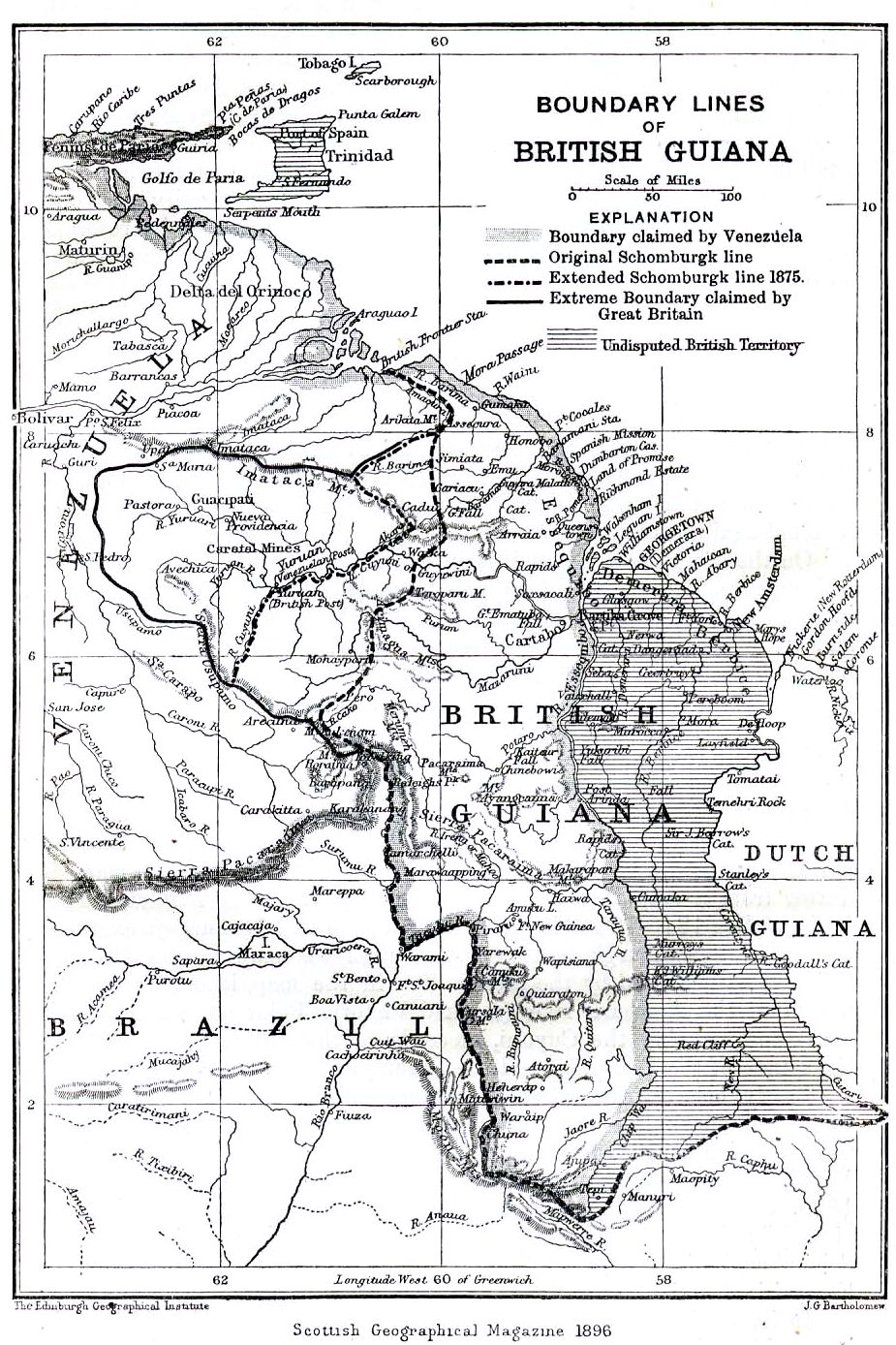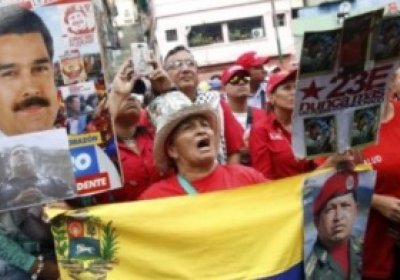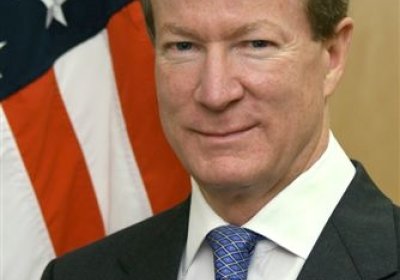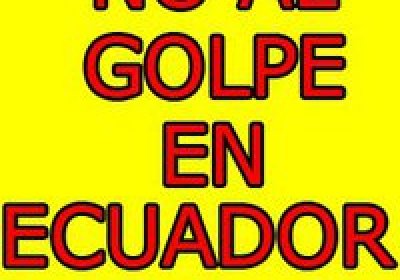 It all began in 1835 when the British Empire sent a German-born naturalist and explorer to conduct geographical research in the South American territory it had colonised and named British Guiana.
In the course of his explorations, a map was drawn that well-exceeded the original western boundary first occupied by the Dutch and later passed to British control.
It all began in 1835 when the British Empire sent a German-born naturalist and explorer to conduct geographical research in the South American territory it had colonised and named British Guiana.
In the course of his explorations, a map was drawn that well-exceeded the original western boundary first occupied by the Dutch and later passed to British control.
Eva Golinger
 It all began in 1835 when the British Empire sent a German-born naturalist and explorer to conduct geographical research in the South American territory it had colonised and named British Guiana.
In the course of his explorations, a map was drawn that well-exceeded the original western boundary first occupied by the Dutch and later passed to British control.
It all began in 1835 when the British Empire sent a German-born naturalist and explorer to conduct geographical research in the South American territory it had colonised and named British Guiana.
In the course of his explorations, a map was drawn that well-exceeded the original western boundary first occupied by the Dutch and later passed to British control.
There is a coup underway in Venezuela. The pieces are all falling into place like a bad CIA movie.
At every turn, a new traitor is revealed, a betrayal is born, full of promises to reveal the smoking gun that will justify the unjustifiable. Infiltrations are rampant, rumours spread like wildfire, and the panic mentality threatens to overcome logic.
Headlines scream danger, crisis and imminent demise, while the usual suspects declare covert war on a people whose only crime is being gatekeeper to the largest pot of black gold in the world.
Media attacks
Ever since the US-supported coup attempt against President Hugo Chavez in Venezuela failed in April 2002, Washington has been pursuing a variety of strategies to remove the overwhelmingly popular South American head of state from power.
A fair portion of the more than 1600 United States State Department documents WikiLeaks had published by mid-December referred to the ongoing US efforts to isolate and counter the left-wing, anti-imperialist Venezuelan government.
After Hugo Chavez was elected president in 1998, Washington engaged in numerous efforts to overthrow him. These have included a failed coup d’etat and an oil industry lock-out in 2002, worldwide media campaigns and various electoral interventions.
A coup attempt is underway against the government of President Rafael Correa. On Thursday morning, groups of police forces rebelled and took over key strategic sites in Quito, Ecuador’s capital.
As Venezuela’s September 26 National Assembly election time approaches, international media have increased negative coverage of the South American nation.
The bombardment of negative, false, distorted and manipulated news about Venezuela in US media has increased in volume and intensity during the last few days.
Venezuela is subjected to this every time an election nears. This international media campaign against the left-wing government of Venezuelan President Hugo Chavez appears to have a clear and coordinated objective: removing the Chavez from power.
Despite US President Barack Obama’s promise to Venezuelan President Hugo Chavez that his administration wouldn’t interfere in Venezuela’s internal affairs, the US government-funded National Endowment for Democracy (NED) is channelling millions to anti-Chavez groups.
Foreign intervention is not only executed through military force. The funding of “civil society” groups and media outlets is one of the more widely used mechanisms by the US government to achieve its strategic objectives.
Venezuelan President Hugo Chavez ordered a maximum alert on Venezuela’s border with Colombia after the administration of Colombian President Alvaro Uribe accused the Chavez government of harbouring terrorists and running terrorist training camps on July 22.
Uribe’s government gave a shameful presentation before member states of the Organisation of American States (OAS) on July 22. It was similar to former US Secretary of State Colin Powell’s 2003 “weapons of mass destruction” Power Point evidence to the United Nations Security Council to justify the war in Iraq.
Latin America has suffered constant aggressions from Washington during the past 200 years.
US National Director of Intelligence Admiral Dennis Blair presented the “annual threat assessment” before the Senate Select Committee on Intelligence on February 2
The January 8 violation of Venezuelan airspace by a P-3 US military combat plane is another example of the danger US military presence in the region represents.
In the midst of an international campaign launched against Venezuelan President Hugo Chavez, carried out by the extreme right from Colombia and supported by Washington, the US State Department has organised and financed the trip of eight young Venezuelan politicians to the US.
- Page 1
- Next page






